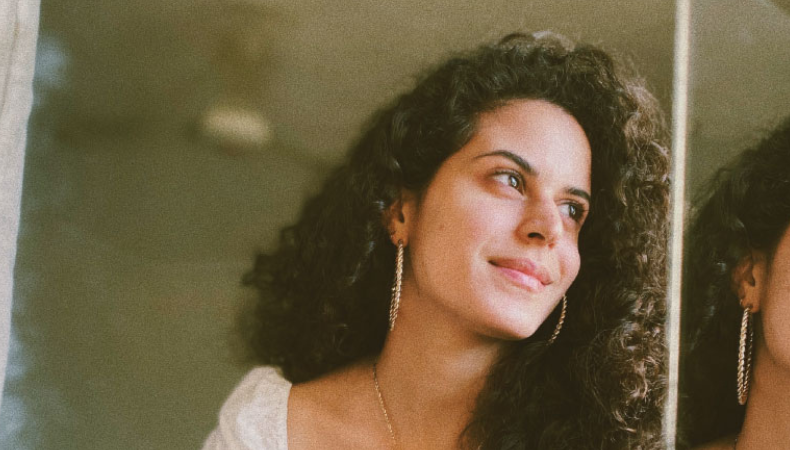Rapper Nadine El Roubi talks about the Afro-Arab storytellers who inspire her

Nadine El Roubi’s story is one of constant change: she never stayed in one place for too long. “I always say a place is also a face,” says the Afro-Arab rapper and artist. “I love experiencing life through other people and telling their stories.”
Born in Khartoum, Sudan to an Egyptian-Sudanese mother and an Iranian-Sudanese father, El Roubi has felt at home in many places: moving to Fairfax, Va., when she was one; Fairfax, State. 10 people returned to Khartoum many years ago. After high school, her passion for travel took her to Maastricht in the Netherlands, Birmingham in the UK, Amman in Jordan, Aswan and Cairo in Egypt, and now Boston-Worcester to be exact.
During this time, her career has taken her to the XP Music Futures festival in Riyadh and the Rap & Beyond festival in Beirut, travels that have allowed her to elevate Afro-Arab storytelling on a global scale. Like many artists from the Swana region, she has recently dedicated herself to raising awareness about Sudan and Palestine on social media. At the same time, she rediscovered the joy of making music for herself. “Storytelling for me has always been about exploring myself, allowing myself to be myself in all forms, and allowing others to feel like they can do the same,” she said.
What motivates you to tell stories?
I grew up with stories. Reading is very important in my family. The first gift I received was a book. My mother read to me and I read to my little sisters. We went to the bookstore and [my mom] stayed there all day. Stories were truly my safe space, even outside of reading, my mother would tell me stories from the Golden Age of Sudan, her childhood, and even family dramas. I think that made it natural for me to want to tell stories and made me understand that storytelling isn’t just about sharing experiences, it’s about archiving history.
Do you have a favorite storyteller?
Safia Elhillio is my favorite author of all time. She is a Sudanese-American poet whose lyrics are heartbreaking. It took me almost a year to finish Home Is Not a Country because I cried every few pages. This is the story of a girl named Nima who misses a country she is from but has never been to. She only heard about it through stories. If you’re from Sudan, you’ll know it’s about Sudan, but Safia keeps it vague enough so that any expat can understand. She also has a book of poems called The Girl That Never Dies about femininity, female friendship, the objectification of Arab women—especially for her, navigating Islam and modesty as a black Arab woman means something, but also wants to be free. She has a new book coming out called “Bright Red Fruit.”
Have current events in the Arab world, such as the situation in Palestine or the crisis in Sudan, had an impact on your approach to music?
One hundred per cent. When everything happened in Palestine, I suddenly realised that the industry we work in, the country we live in, is not made to welcome people like us, with our points of view, our origins and our history. I focused on how we could support each other and build laterally.
Where in the world do you find inspiration?
Studio Kubbara in Egypt. I go there straight away and take off my shoes. There are subdued lights, carpets and Arabic calligraphy drawings. It’s beautiful and so relaxing, I’m always very inspired when I’m there.
Are there any must-see places in the cities where you’ve lived?
If you go to Cairo, you have to go to Abou El Sid because it’s authentic Egyptian food like stuffed pigeon, lamb and bamia (stew). What I like about this restaurant is that all the walls are covered with posters of old Egyptian films, which creates a nice atmosphere. The Loft Gallery is also a cool antique shop and café in Zamalek. In Boston, it’s Shiraz Persian Cuisine. I really like Persian cuisine. Kubideh beef – that’s my thing – with basmati rice and saffron on top. Cucumber and yoghurt sauce on top. Done. That’s all I need.




